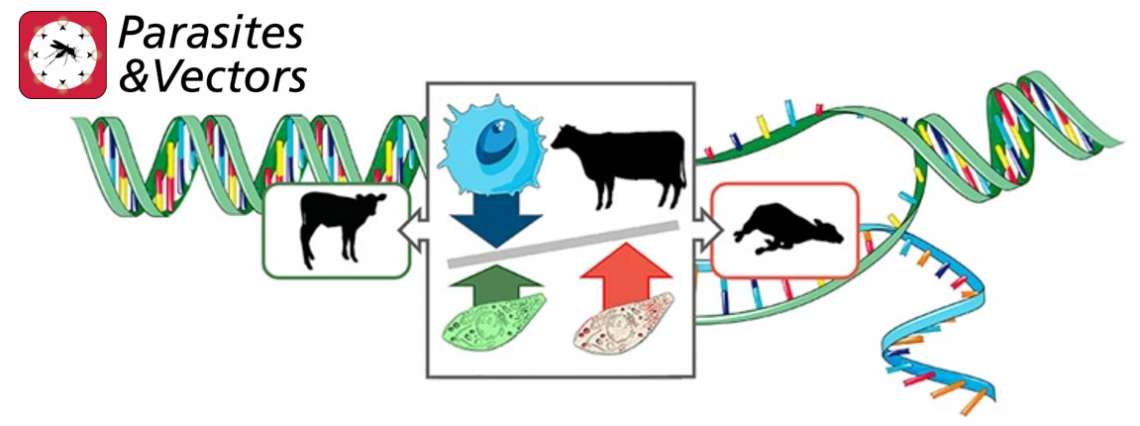New publication in Parasites & Vectors: Neospora caninum infection induces an isolate virulence-dependent pro-inflammatory gene expression profile in bovine monocyte-derived macrophages
3 ago 2020 - 10:48 CET
Marta García-Sánchez, Laura Jiménez-Pelayo, Pilar Horcajo, Esther Collantes-Fernández, Luis Miguel Ortega-Mora, Javier Regidor-Cerrillo
Abstract
Background
Neospora caninum is an obligate intracellular parasite, and its ability to survive inside host immune cells may be a key mechanism for the establishment of infection in cattle. In vitro studies carried out by our group have shown that N. caninum is able to replicate in bovine macrophages (MØs), alter their microbicidal mechanisms and exploit their motility. Furthermore, host-cell control seems to be isolate virulence-dependent.
Methods
To investigate the molecular basis underlying the innate responses in MØs against N. caninum and the mechanisms of parasite manipulation of the host cell environment, the transcriptome profile of bovine monocyte-derived MØs infected with high-virulence (Nc-Spain7) or low-virulence (Nc-Spain1H) N. caninum isolates was studied.
Results
Functional enrichment revealed upregulation of genes involved in chemokine signalling, inflammation, cell survival, and inhibition of genes related with metabolism and phagolysosome formation. MØs activation was characterized by the induction of a predominantly M1 phenotype with expression of TLR2, TLR3 and TLR9 and activation of the NF-ƙB signalling pathway. Heat-killed N. caninum tachyzoites failed to activate NF-ƙB, and to inhibit lysosomal activity and apoptosis, which indicates active modulation by the parasite. The FoxO signalling pathway, Th1-Th2 differentiation, glycosaminoglycan degradation and apoptosis were pathways enriched only for low virulent Nc-Spain1H infection. In addition, Nc-Spain1H infection upregulated the IL12A and IL8 pro-inflammatory cytokines, whereas IL23 was downregulated by high virulent Nc-Spain7.
Conclusions
This study revealed mechanisms implicated in the recognition of N. caninum by bovine MØs and in the development of the subsequent immune response. NF-ƙB seems to be the main signalling pathway implicated in the pro-inflammatory bovine MØs response against this pathogen. Apoptosis and phagolysosome maturation are processes repressed by N. caninum infection, which may guarantee its intracellular survival. The results also indicate that Nc-Spain7 may be able to partially circumvent the pro-inflammatory response whereas Nc-Spain1H induces a protective response to infection, which may explain the more efficient transmission of the high-virulence Nc-Spain7 isolate observed in vivo.

